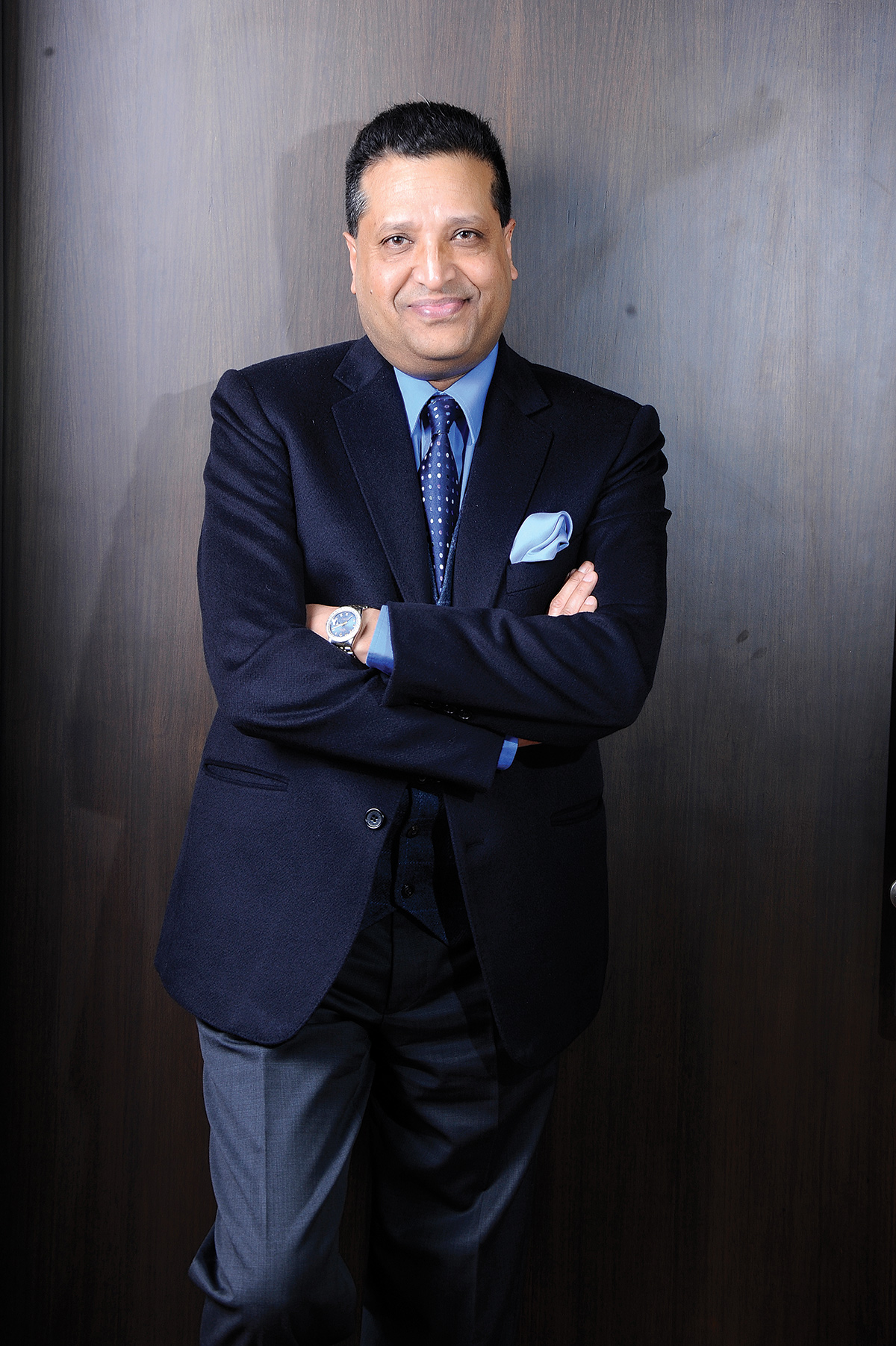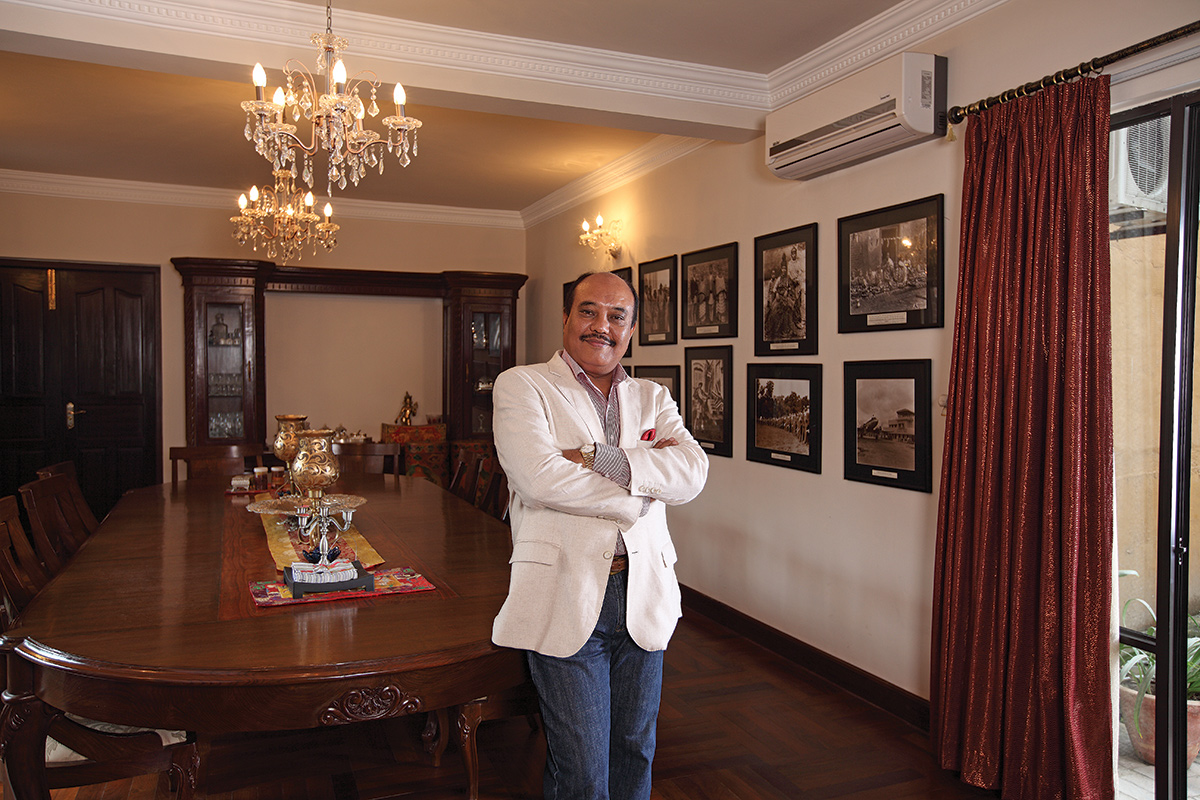
It has been a tradition for family businesses to pass their business to the next generation. And perhaps rightly so argue most people. After all, there is no better legacy than handing down a thriving business to your offspring. But what happens if your children are not interested in running your business or lack the skills to do so. Should then the successor be from within the family? And how do you know when is the right time for your to take the back seat? Business360 asked a few of the corporate giants for their perspectives on the matter.




Deepak Malhotra Chairman, IMS Group

How do you know that the next generation is ready to lead the company?
When they start making decisions more professionally than personally. I feel only experience working with the company can truly teach you to start thinking from a mature perspective. In my case, I do feel like my son has grown up well in the organisation and I am confident in his abilities to make good decisions not just for us but for all employees too. I am also getting old so I realise I need to step back from new ventures yet continue giving stability to the existing structure.When do you think a business leader should take the backseat?
I don’t believe in a specific timeline, rather it’s about one’s health, passion and contribution to the company. As long as we are positively influencing our organisation and know our role as a leader, age doesn’t really matter. Real leaders will always have something to contribute whether it is time, experience or advice, and all of it can be fruitful but if we sense we are burdening the company, that’s when we can hang up our boots!Does the next in line always have to be someone from the family?
I think this is unique to the situation in every company. In my case, it’s my family, but in another company maybe someone from the outside could be better suited. In family owned businesses, children grow up with a unique connection to the company and this extra love always serves better when it’s time to take responsibility, however the best leader could be born to or within the family.Describe your own personal experience in passing on responsibilities.
It should be gradual and not overwhelming. Learning is a process and one cannot expect all responsibilities to be handled in the same way as of the earlier leader. So being patient and open minded about change is the best way to hand them over. I started slowly too but I trust my son and have always given him space to learn, make mistakes and grow.Basant K. Chaudhary Chairman, BLC Holdings

How do you know that the next generation is ready to lead the company?
Ushering in the new generation in leadership roles is not an overnight process. It happens gradually as the young generation is made to go through the mill performing functions at different levels. The person concerned is always under scrutiny by the top management and other CXOs. Being the biological heir of the promoter is no guarantee for getting the top job. Leadership qualities and success in acquiring ability and skills to be at the helm of affairs enable the top management to place the promising young individual in a leadership position. But that is just the beginning. The young incumbent has a long and difficult journey ahead to prove his/her potential.When do you think a business leader should take the backseat?
There is no definite age bracket for moving out of top position. Factors like the existing leader’s mental and physical ability to perform and the chosen youngster’s potential to take on higher responsibilities determine whether or not the existing leader should make way for the upcoming youngster. Often the youngster is handed over leadership roles in piecemeal manner with the top boss continuing as a mentor. However, there are instances galore in privately held companies wherein the promoter retains executive control lifelong and operates through a trusted board of directors including his progeny.Does the next in line always have to be someone from the family?
Privately held companies usually witness successors emerging from within the family. Youngsters in the family get exposed to the organisation’s values and culture from almost their childhood, a major plus point which an outsider lacks. The succession is therefore predictably certain and smooth. But there are examples wherein the progeny of the top person has either failed to measure up to expectations or is uninterested in running the business personally. In such cases, professionals run the organisation and safeguard the interests of the promoter’s family.Describe your own personal experience in passing on responsibilities.
Personally speaking, I am fortunate enough to be the father of the most promising and caring daughter, Megha. She has been actively engaged in managing different companies of BLC. The conglomerate’s flagship, Norvic International Hospital, is being run hands-on by her. She is empathetic to our employees across Nepal and is focused on customer care. She is also open to expert advice and guidance from all quarters. Megha is the top boss in making.Moti Lal Dugar Chairman, MV Dugar

How do you know that the next generation is ready to lead the company?
The next generation should be inducted in business after their studies are over and they should work directly under leader for at least five years to understand and observe business tactics, public relations etc.When do you think a business leader should take the backseat?
They should hang-up boots when they are above 80 or when they are unable to perform their duties due to health and other reasons whichever is earlier. I strongly believe that head of family should not retire till he is mentally and physically fit and he enjoys leading business. If he starts feeling business activities giving him burden, tensions etc. at such point, he must retire and engage himself in social and religious activities etc.Does the next in line always have to be someone from the family?
I strongly believe next in line should be from family. However, if next generation is not so capable, some responsibilities can be shared by appointing CEO or General Manager in between. Describe your own personal experience in passing on responsibilities. Gradually I handed over important business verticals - automobile and investment in insurance sector - completely within one year but still oversaw the same on monthly performance basis as the Executive Chairman.Yogendra Sakya Chairman, ACE Hotels Resorts

How do you know that the next generation is ready to lead the company?
My son Rahul and daughter Parmita are already leading Ace Hotels and Resorts and I am proud and confident that they can lead better than me. It takes two to tango and it is all about trusting the children. Because of the protective nature a father always has about the children and the business, it does take time to pass over the torch to the next generation. The father says, “chora chori le business herdai herdaina” whereas the next generation says, “buwa le garnai didaina”. Thus, conflict arises between the two generations. To avoid such strains, I think the father or elder generation should have the magnanimity and have the confidence to pass over the leadership of the company to the next generation because they are the next generation, they know the trend of the market and their innovative ideas is what will take the business forward.When do you think a business leader should take the backseat?
The body of the leader might get old, but not the mind. Even though the leader isn’t fully involved in the company, s/he can still be involved as a consultant. It’s very important to divide the job description amongst family members so that chaos doesn’t happen in the business. Personally, I do like to keep a watch and complain whatever I feel isn’t right to the staff of the hotels. I also tell the staff that the complaints should reach the management so that they can address those issues.Does the next in line always have to be someone from the family?
If you look at the trend of the family-owned businesses in Nepal, the responsibility to lead the company has always been entrusted to the next generation in line. It’s not just in business, but if you look at politics, same thing has been happening whether it’s in India or Nepal. The main reason why someone from the family is entrusted to lead the business rather than have an outsider is because s/he will have that emotional feeling towards the business which no General Managers or CEOs will have. You can blame the family-owned businesses for not allowing outsiders lead the business but when you have GMs and CEOs outside the family, there is a risk that if better opportunities knock on their doors, they’ll leave the company whereas a family member won’t. Most family businesses wouldn’t want to take that risk and would rather prefer to have their own children run their businesses. In case of next generation not being capable to run the business, then only the GM or CEO is entrusted to lead the company. But, the first priority in any family-owned business will be someone from the family itself.Describe your personal experience in passing on responsibilities.
In my case, it was when my son Rahul had just finished his undergrad studies. He had done interior designing courses as well so I asked him to do the interiors of 24 rooms that we had added at Club Himalaya. He was overspending the budget and I was going to stop him because we were initially a budget hotel. I didn’t realise that the market trend was changing and that there was scope for three and four star hotels in Nepal. It has then I realised that he understands the market trend of Nepali tourism industry, that he is ready to lead the company and that he will play an important role in changing the dynamics of hotel industry of Nepal. Similarly, when my daughter Parmita came back to Nepal after her studies, she pitched marketing and sales ideas which have led ACE Hotels to what it is today. Both Rahul and Parmita changed my perception of what ACE Hotels could be. Rahul is very dedicated and hard-working whereas Parmita is somewhat like me, a thinker and planner. Also, I found out that my daughter-in-law Amanda is passionate about food and beverage; she also joined ACE Hotels providing valuable insights towards improving our F&B department. Currently, Rahul is handling the management of ACE Hotels and Parmita is heading the sales, marketing and reservation departments; Amanda is leading the F&B department and I am looking after the planning and finances.
Published Date: March 30, 2021, 12:00 am
Post Comment
E-Magazine
RELATED Opinion





